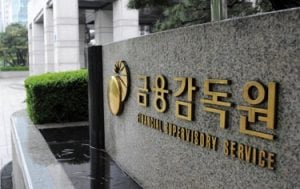Following the inspections of six major banks this week, South Korean regulators have uncovered some inadequate internal controls for handling cryptocurrency exchanges. Given the government’s strict rules, some banks have decided to stop providing services to cryptocurrency exchanges instead of overhauling their systems further to comply with the regulations.
Banks’ Inadequate Internal Controls
The South Korean Financial Intelligence Unit (FIU) and the Financial Supervisory Service (FSS) jointly conducted on-site inspections of the country’s six major banks on Monday, as news.Bitcoin.com previously reported.
 Woori Bank, KB Kookmin Bank, Shinhan Bank, Nonghyup Bank, Korea Development Bank (KDB), and Industrial Bank of Korea (IBK) are being inspected. The aim of the audits is to ascertain whether these banks have fulfilled their anti-money laundering obligations, as mandated by the government’s cryptocurrency regulations.
Woori Bank, KB Kookmin Bank, Shinhan Bank, Nonghyup Bank, Korea Development Bank (KDB), and Industrial Bank of Korea (IBK) are being inspected. The aim of the audits is to ascertain whether these banks have fulfilled their anti-money laundering obligations, as mandated by the government’s cryptocurrency regulations.
The inspection period was originally from January 8 to 11 but the agencies extended it on Thursday to January 16, Money Today reported. An FSS officer was quoted saying:
We have extended the period since we need to identify and respond to more precise conditions through inspections of inadequate internal controls found during the on-site inspection process.
Banks Dropping Out
On Friday, local publications reported that some banks have withdrawn from implementing the government mandated, real-name verification system. The regulators are working on creating this system to end the practice of anonymous trading which is currently possible through the use of virtual accounts. These accounts are issued by banks for crypto exchanges; each consists of a large number of sub-accounts. Crypto exchanges assign them to their customers in order to deposit money for trading.

“As the government increased pressure on the virtual currency market, commercial banks are withdrawing the introduction of real name transaction confirmation service,” Etoday reported.
Shinhan Bank announced on Friday that it will not introduce this system but instead will stop providing virtual account services to crypto exchanges instead. An official at the bank was quoted by Hongyung saying:
We decided that it would be better not to introduce a system that enables virtual currency transactions.
Other banks are contemplating whether to follow suit. An official from IBK bank said, “We also decided to shut down our existing [virtual] accounts.” An official at KEB Hana Bank commented, “I do not think it is permissible to provide a virtual currency trading account.” Both KEB Hana Bank and KB Kookmin Bank “will not go into virtual account services until the authorities’ policy is decided,” Kookje reported. Meanwhile, Nonghyup Bank is performing an internal review in order to make a decision, according to Yonhap.
Considering the regulators’ strict policy, it will be difficult for banks to create a system that fully complies with their requirements, Hankyung noted, adding that “This means the de facto abolishment of virtual accounts, which inevitably shrinks [the number of] virtual currency transactions.”
What do you think of banks choosing to stop servicing crypto exchanges rather than implementing the government’s system? Let us know in the comments section below.
Images courtesy of Shutterstock, Wikipedia, and Korea Times.
Need to calculate your bitcoin holdings? Check our tools section.
The post Strict Regulations Force South Korean Banks to Stop Servicing Cryptocurrency Exchanges appeared first on Bitcoin News.
Powered by WPeMatico
